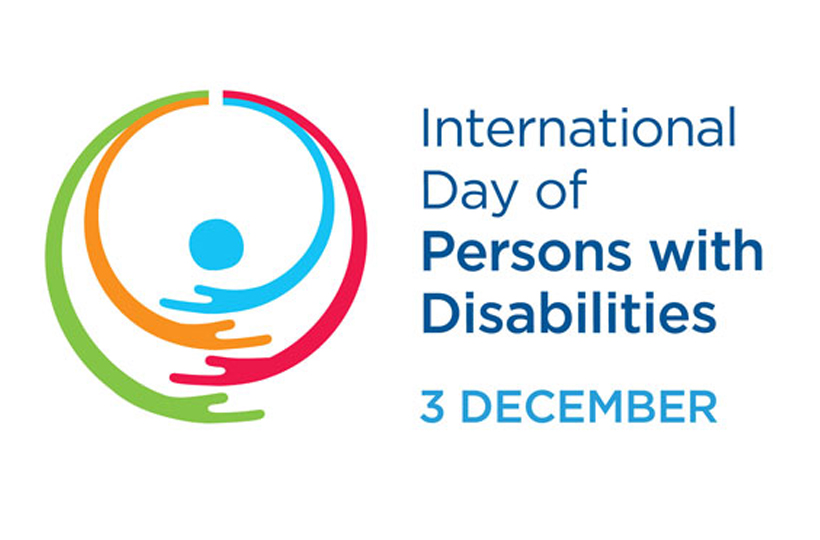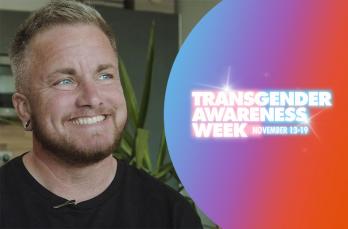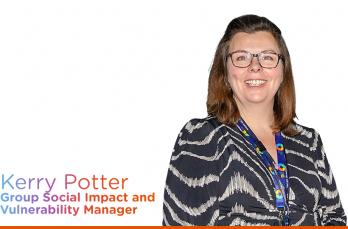
3 December celebrates the UN’s International Day for People with Disabilities, which aims to promote the rights and well-being of persons with disabilities. At SGN, we’re hearing people around the company and how disability affects their lives.
For Jonathan Bryson, Econometric Manager and Chair for our Ability@SGN network, it’s a time to reflect on the experiences of people with health conditions and disabilities and to think about how well our society supports them.
Jonathan says: “We’ve had three meetings so far, using the opportunity to talk about the challenges faced by colleagues with health conditions. We’ve discussed how SGN could do better to improve the support given. A lot of work can be done around awareness. Some colleagues may not even realise their health condition entitles them to ask for extra support or adjustments in the workplace. Managers, too, may not feel they know how to offer the best support.
“We’ve recently undertaken a self-assessment through the Business Disability Forum (BDF). While we wait for their feedback, from the responses we do already know there are areas of great strength and areas where things can improve. Our Exec sponsor Andrew Quail is keen to start working on this even before we hear back from the BDF. So, we’re reaching out to other organisations to understand different operational models to see if other ways of delivering the adjustments process could speed things up.”
After joining us as Director of HR Operations in September 2023, Alex Rainger became part of our Ability@SGN network. She doesn’t have a condition herself, but both of her sons do.
Alex says: “My sons, 19 and 14, both have a degenerative eye condition called x-linked retinoschisis which means that they a significant visual impairment. Fin (19) is registered as SSI (severely sight impaired) and Joe (14) is registered as partially sighted.
“I’m fully sighted, so in addition to becoming a mum for the first time, I also had to learn a whole new way of navigating the world as a mum of children with a disability. As I look back over that journey, I wanted to share a few insights:
- Typically, no child wants to be labelled as ‘different’ from their friends - I became really conscious of how powerful it was to use language that emphasised similarities rather than differences.
- Accessing education opportunities is an exhausting process - be confident that you are not asking for ‘special treatment’ – you are ensuring that your child has a level playing field with their able peers.
- Ensuring your child is ‘included’ in clubs/activities can be a bit of a battle – don’t accept the stock response - ‘we’re not insured for children with those kinds of issues’ – in my experience it is always possible to find a way to ensure that your child can be included, safely and within the terms of any insurance policy!
- Being confident to self-advocate (asking for what you need) is one of the most valuable life skills a child with a disability can develop.
First Call Operative Danny McCabe has been with us for 32 years and has a hidden disability he’s been managing as part of his everyday life.
Danny says: “I was diagnosed with Type 2 diabetes ten years ago at the age of 40. Although it came as a surprise, it wasn’t entirely unexpected as the condition can be genetic and both my parents are diabetic. In the first instance, I cut sugar out of my diet and managed my blood glucose through diet and exercise alone.
“However, Type 2 diabetes is a progressive condition. Over the years I eventually moved onto various tablet medications to slow the progression, and then five years ago I moved to insulin injections to control my blood sugars. At that point I knew my life was never going to be the same again. How I structured my day and how much energy I exerted would be key to managing my health.
“Dealing with the reality of having to take insulin for the rest of my life took a heavy toll on my mental wellbeing for months. Not only did I have to learn how to work out how much insulin to inject and when, but I also had to deal with the physical symptoms of the transition to using insulin. All Type 2 diabetics are affected differently by their condition, and not all Type 2 diabetics will need insulin.
“In my case, I suffer a greater level of fatigue than someone of my age without diabetes, so it’s important for me to have a predictable pattern of working hours and rest time to allow me to manage my condition and maintain my health. I strongly believe that people with a disability, like myself, can and have been making a valuable contribution to SGN’s workforce in the past and well into the future.”




